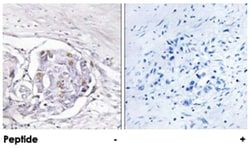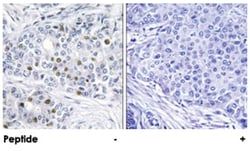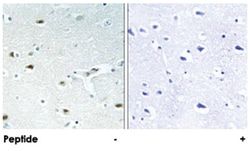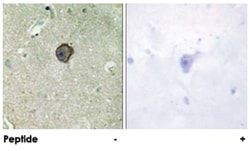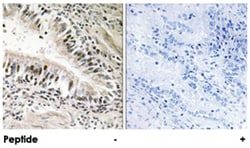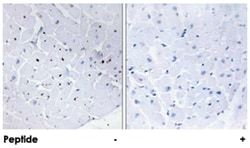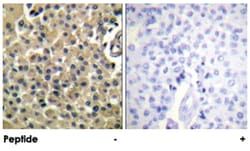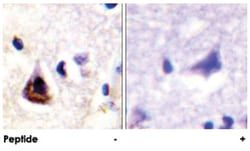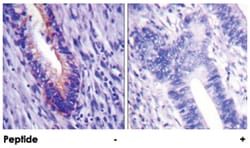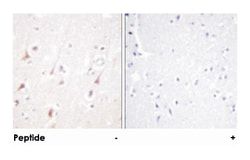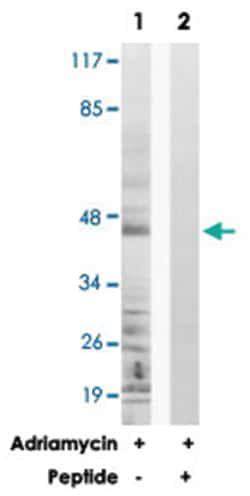EIF4G1 Rabbit anti-Human, Mouse, Rat, Polyclonal Antibody, Abnova™
Manufacturer: Abnova Corporation
Select a Size
| Pack Size | SKU | Availability | Price |
|---|---|---|---|
| Each of 1 | 89-119-810-Each-of-1 | In Stock | ₹ 55,892.00 |
89-119-810 - Each of 1
In Stock
Quantity
1
Base Price: ₹ 55,892.00
GST (18%): ₹ 10,060.56
Total Price: ₹ 65,952.56
Antigen
EIF4G1
Classification
Polyclonal
Conjugate
Unconjugated
Dilution
Immunohistochemistry (1:50-1:100) Immunofluorescence (1:500-1:1000) ELISA (1:5000) The optimal working dilution should be determined by the end user.
Gene
EIF4G1
Gene Alias
DKFZp686A1451/EIF4F/EIF4G/p220
Host Species
Rabbit
Purification Method
Affinity purification
Regulatory Status
RUO
Gene ID (Entrez)
1981
Target Species
Human, Mouse, Rat
Form
Liquid
Applications
ELISA, Immunofluorescence, Immunohistochemistry (PFA fixed)
Concentration
1 mg/mL
Description
Rabbit polyclonal antibody raised against synthetic peptide of EIF4G1.
Formulation
In PBS, 150mM NaCl, pH 7.4 (50% glycerol, 0.02% sodium azide)
Gene Accession No.
Q04637
Gene Symbols
EIF4G1
Immunogen
A synthetic peptide corresponding to human EIF4G1.
Quantity
100 μg
Primary or Secondary
Primary
Test Specificity
This antibody is specific to EIF4G1.
Content And Storage
Store at -20°C.Aliquot to avoid repeated freezing and thawing.
Description
- The protein encoded by this gene is a component of the protein complex EIF4F, which is involved in the recognition of the mRNA cap, ATP-dependent unwinding of 5'-terminal secondary structure, and recruitment of mRNA to the ribosome
- Alternative splicing results in five transcript variants encoding four distinct isoforms
- [provided by RefSeq]
